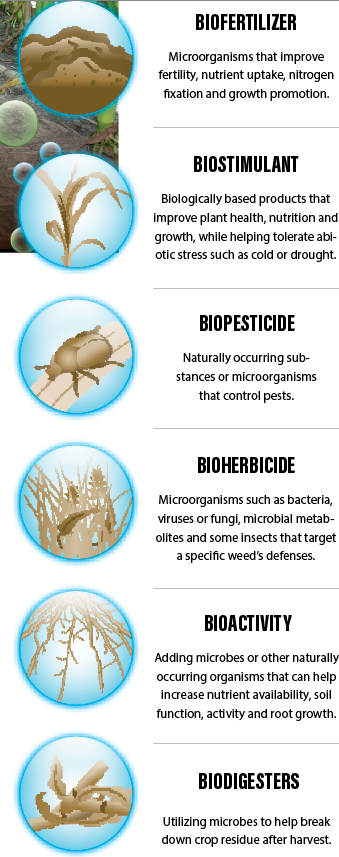Do Input Shortages Open the Gate for Biological Products?

In the face of shortages and escalating costs for traditional inputs, is 2022 the year you turn to biological products to bridge potential gaps?
Some biological manufacturers and marketers believe that could be the case – and for multiple reasons.
“Given the steady improvement and availability of biological products, overall consumer demand and increasing emphasis on soil health, there’s never been a better time to look at this technology,” says Micah Scanga, commercial product manager for AMVAC.
As you evaluate input options for next spring, here are five steps to size up whether a biological product might be a good fit for your farm.
1. Identify the production need you have that a biological can address.There are two major categories of biologicals today, Scanga says.

“These products usually offer a distinct benefit such as a lower field re-entry time or pre-harvest interval,” Scanga says.
The second category of biologicals includes crop enhancers, soil amendments and biofertilizers. These products focus on maximizing plants’ ability to reach their genetic potential by working on either abiotic stress management or fertilizer efficiency.
“These products bring a very exciting addition to the agricultural industry because they have the potential to address major issues such as more efficient fertilizer usage, carbon sequestration, and the health of soils,” Scanga says.
2. Work with a trusted partner or adviser to minimize risk. With more than 200 companies offering biostimulant products, for instance, you have a lot of potential options to choose from, notes Keith Jones, executive director of the Biological Products Industry Alliance. Partner with one you know, especially if you haven’t used a biological before.
3. Pick a product that fits the way you farm today. “I would say that’s the No. 1 goal — choose a product that fits naturally into your existing operational system,” advises Mick Messman, CEO of DPH Biologicals, formerly Douglas Plant Health. In the process, look at company and third-party data to confirm product performance for your area.
4. Consider the compatibility of the product. “You want to use a product that is flexible and can be used as part of your program,” Messman says.
Along with that, make sure you understand how to handle and store the product for optimum results. “Ask if the product has a long shelf life or not and how it needs to be stored,” he advises.
“Where products are manufactured and what types of quality control are in place in manufacturing, distribution and shelf life are also good questions to ask,” Scanga adds.
5. Look for competitive pricing on biologicals. Better yet, look for a return on investment in improved yield outcome, Messman encourages.
Weed Control In A New World Order







